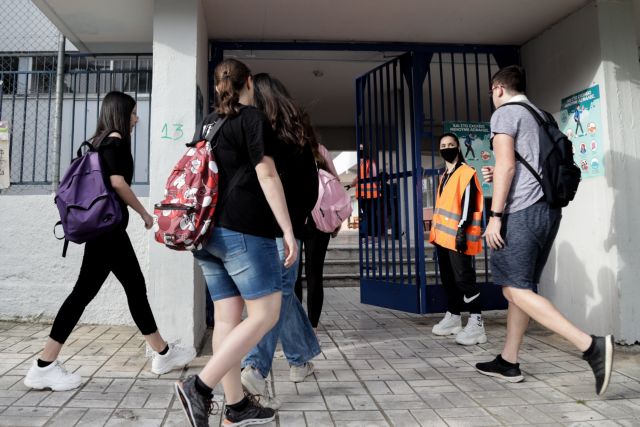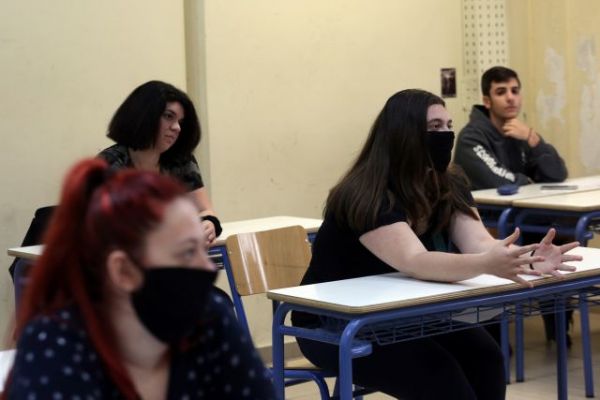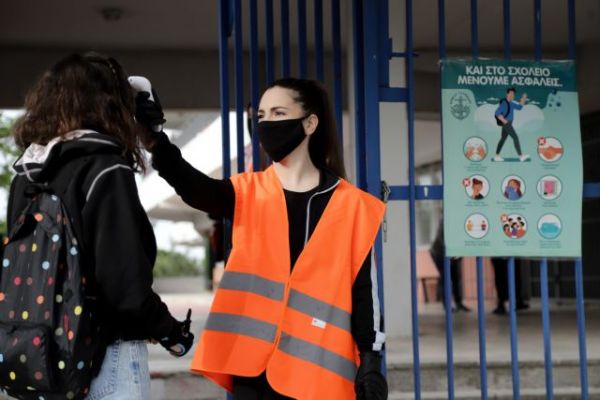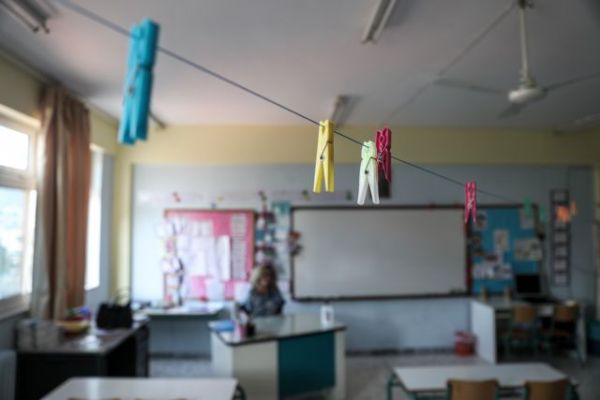
[ad_1]
Concerns about when it will be safest to open schools with the fewest possible risks prevail in the government and in the infectious diseases committee that monitors the development of the pandemic every day.
The Infectious Diseases Committee is meeting today to make its final suggestion to the government for the opening date of the school units with the two dates that “play” on September 7 and 14.
The dilemma in the government is a fact since in the last two days there may have been a decrease in the number of new cases announced by EODY, however, there is fear of a new outbreak in the coming days.
It is characteristic that even scientists do not have a single position for the opening of schools, that is, the date on which the first bell will ring and the role that the number of students per class plays in the transmission of the virus.
Many insist that it would be better to start classes a week later than originally scheduled for September 14. However, the Ministry of Education, through the Secretary General who spoke to MEGA this morning, is ready to open schools even on September 7, if necessary.
“We have dealt with staffing with appointments for the first time after 10 years, new ASEP boards have been launched, cleaners are in place, while all school buildings are equipped with antiseptics and disinfectants,” he said Sissy Gika, saying that all that remains is to give the experts a “green” light for the date.
Sypsas suggests opening schools early
Infectious disease specialist Nikos Sypsas, speaking to MEGA this morning, referred to the opening of school units and explained why he suggests ringing the first bell on September 7.
Like he said, they have to start early for two reasons. “On the one hand, because in the event of an outbreak of the virus and a second wave of the virus, it will probably be necessary to stop classes in the winter and on the other hand because students have to go back to class for social and psychological reasons, after a quarantine week “.
Mr. Sypsas also stated that in the event of a second wave, the other social activities will be closed first and finally the schools. He also noted that schools were closed in March because the behavior of the virus was not known. However, now, “we know that young children are not the group that becomes infected and transmits the virus,” he characteristically said. 
What will happen if there is a case in the schools?
In case there is a confirmed case in a department, then there will be disinfection, tracking, testing and closure of the department and not the school, said Mr. Sypsas, while for distance education he argued that it is not a priority, but that it is It will be used for children who are unable to go to school due to illness and will be a refuge in case schools need to be closed.
Contrary to what his colleague Gikas Majorkinis had argued, Sypsas said about the number of students per class, that “the fewer children there are, the safer the classrooms.” 
Athanasios Tsakris, a member of the special committee of the Ministry of Education, argued that a combination of measures is needed in schools in addition to the use of masks for students and teachers such as ventilation in classrooms, disinfection and the least number of students per class when possible. . He suggested testing be done with tests in schools since, as he said, young people can get sick and be asymptomatic.
Athena Linou, Professor of Epidemiology (ERT) at the EKPA School of Medicine, also brought up the subject of school units.
He argued that the longer they remain closed, the lower the risk of spreading through the school. However, she clarified that this does not solve the problem because – as she said – psychological problems are created in children.
“The same measures of distance that apply in another area should exist in schools. “Focus on school safety measures to minimize the risk of virus transmission.”
For his part, Professor Alexandros Gogos (SKAI) estimates that if the escalating trend in cases registered in recent days continues in the coming days then we can go to the opening of schools on September 7.
Scientists’ proposals
According to Professor Elías Mosialos, it is necessary to ensure the greatest possible distances between students.
A similar opinion has been expressed by Professor Manolis Dermitzakis, who speaking to MEGA said that for at least the first two weeks students should go to school in rotation. “My opinion is rotating and if everything goes well after two weeks to go normally. “I think at 7, I think the parents will be back,” said Manolis Dermitzakis, a professor at the School of Genetics at the University of Geneva.
Decision moment for the start of the school year
Along with students who are anxious about the start date of classes, parents are also waiting for government decisions to do their planning.
The Ministry of Education may have asked parents to enroll their children in school full time to limit contact with the elderly at home (grandparents), but it is not yet known when the extended hours will begin. 
In any case, it is an issue that worries parents about the use of the mask from 8 in the morning to 4 in the afternoon (end of the school day).
Experts are reassuring about the use of masks by children, saying that in many cases, young children adapt and are more disciplined than adults.
The final decisions with all the details for the opening of the schools will be announced tomorrow Tuesday.
[ad_2]